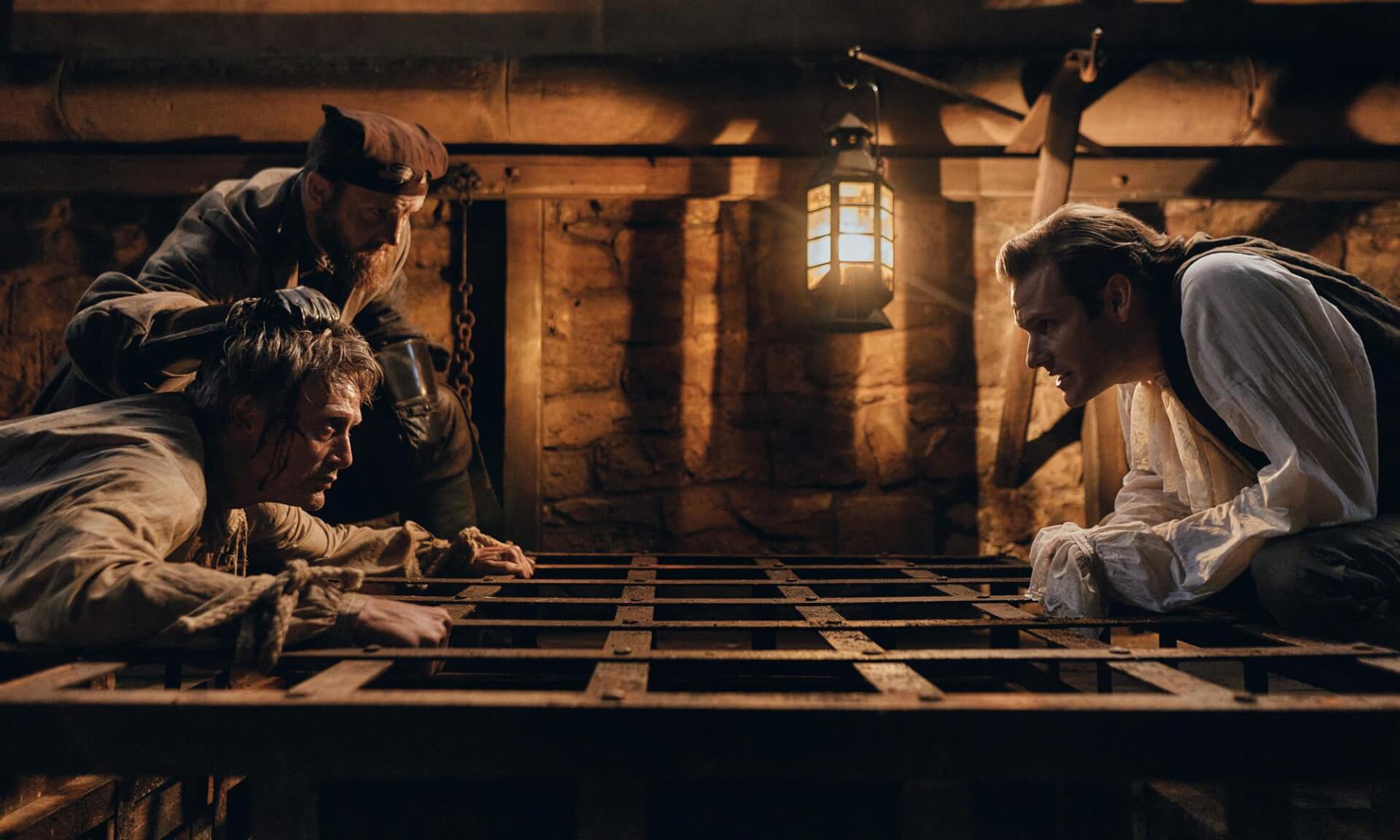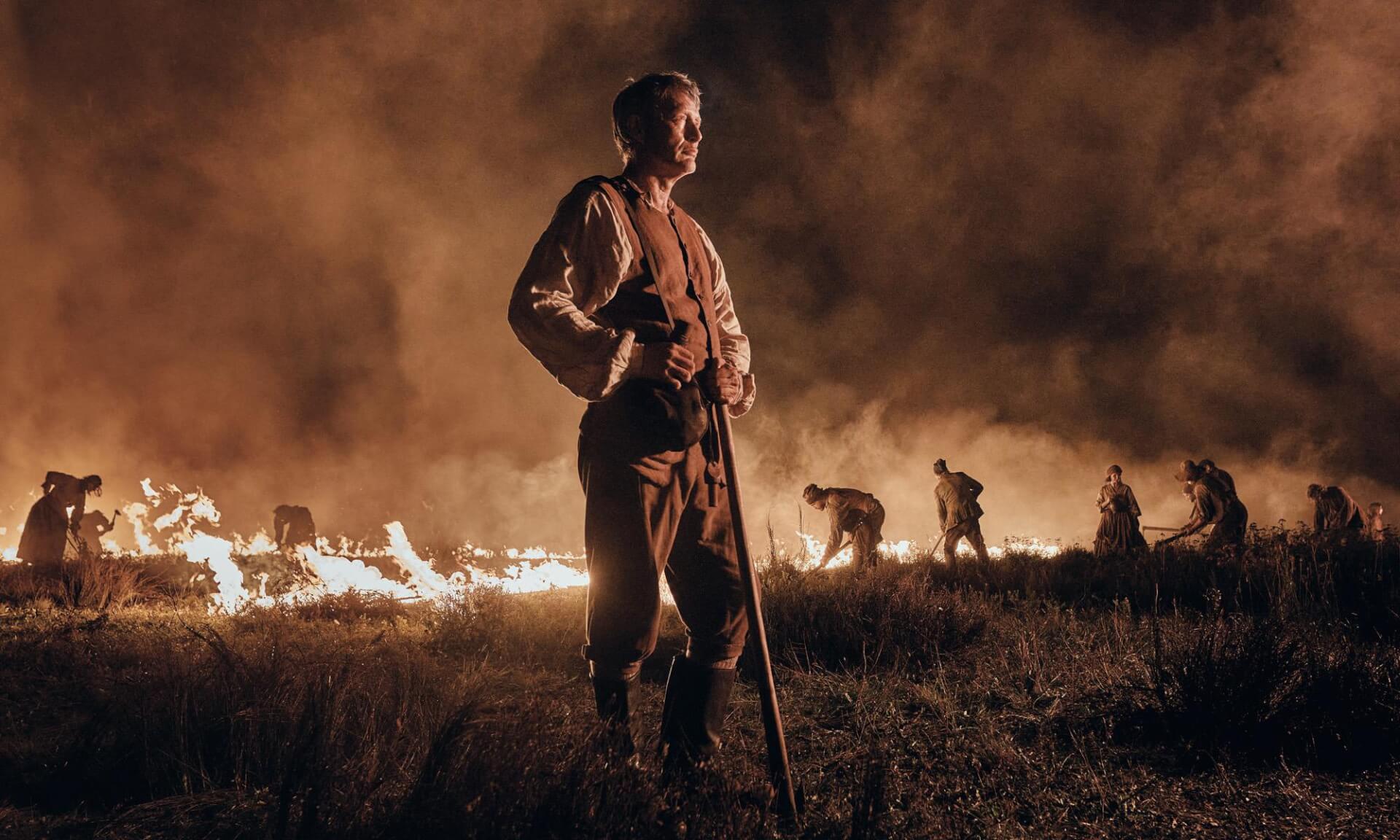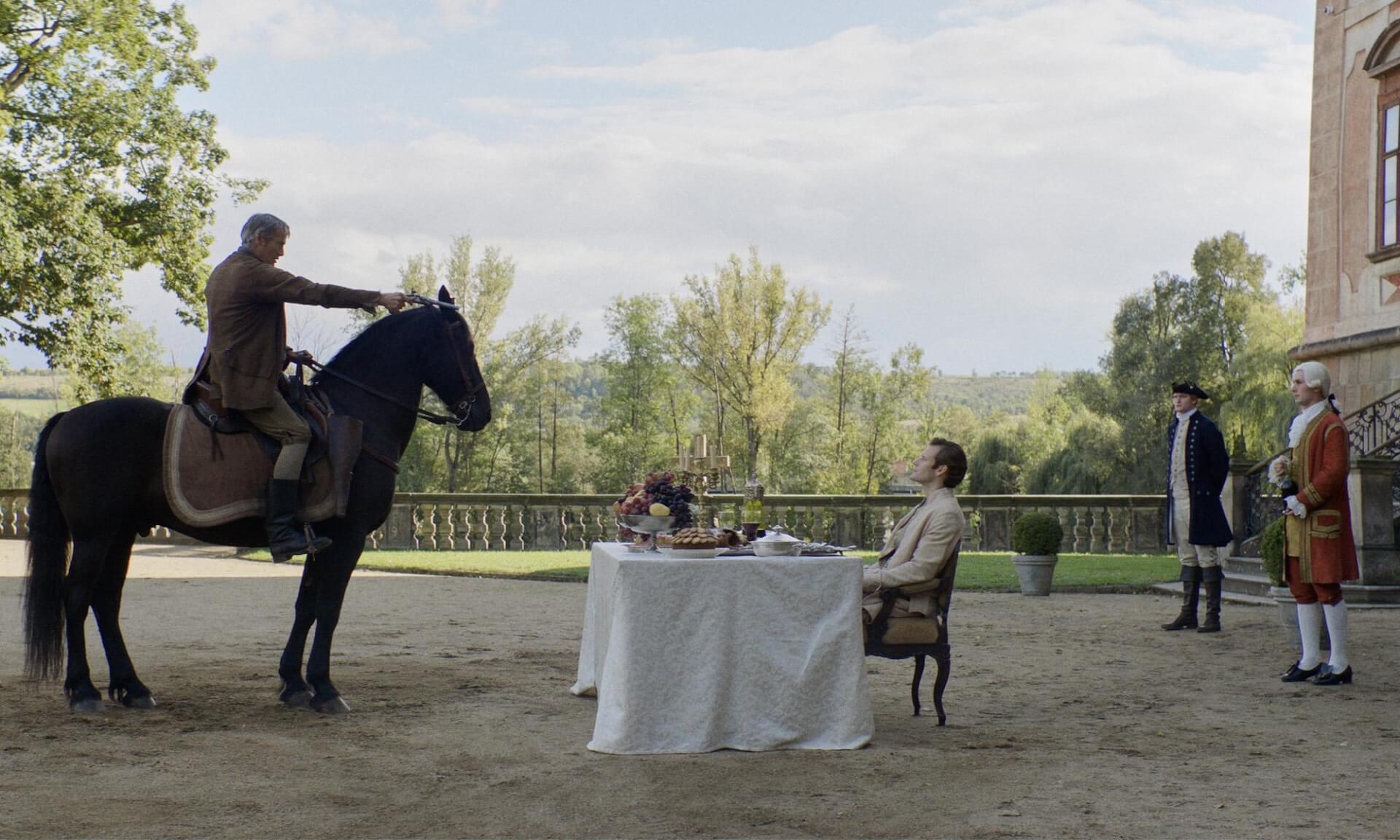THE PROMISED LAND. Historical drama with a discrete allure

Mads Mikkelsen returns to the big screen in Bastarden (or The Promised Land), an 18th-century drama brimming with socio-hierarchical antagonisms and below-the-belt political blows, in which the main protagonist battles a proud lord over disputed land.
That is to say, The Promised Land, someone’s land, theoretically belonging to the Danish king, but in practice to one of the aforementioned lords (depending on their interpretation). Mikkelsen’s hero attempts to reclaim it in exchange for a noble title from the king. The law is on his side, but when he begins to work on the newly settled moor, his opponent no longer cares about any codes. From now on, it’s all about male ego and the desire to demonstrate superiority. But Mikkelsen and his companions won’t give up so easily…

The Promised Land, the latest work by Danish director Nikolaj Arcel is based on Ludvig Kahle’s book and story, played by Mikkelsen (the character’s historical name, ironically), but the film should be considered a separate entity. Therefore, it deserves praise for how the creators (or perhaps the ironic past?) juggle classic motifs and archetypes. Unexpected characters are killed on screen, and what’s more, the heroes we wouldn’t expect at all take the lead. This adds variety to the viewing experience in a meaningful way, as the film’s plot plays with our expectations. As we all know, the tale of a humble captain fighting against a corrupt and villainous noble is quite familiar: the weaker one usually triumphs, the long-awaited kiss between the main couple happens, and evil is ultimately defeated. However, life is not a fairy tale, and fate may have slightly different plans for us. Ludvig tries to win against Lord Frederik De Schinkel (Simon Bennebjerg) at any cost in the battle for land that theoretically belongs to him. But does he even stand a chance?
And since we’ve talked about love, we must also mention the deceptive nature of the main romantic plot, which is probably the most interesting element of the whole movie. Devoid of any family, Ludvig (after all, the titular Bastard) finds love in the least expected place and time, thereby creating a functional yet slightly dysfunctional family unit. Just when we think this plot will go in the most predictable direction, The Promised Land surprises us and offers something incredibly fresh: it’s a classic story format but told a little differently, even unconventionally. By the way, this narrative also proves that the human heart can be spacious enough for successive loves without diminishing the previous ones – lost, forgotten by time, ended in the most unexpected moments. This short phrase may sound abstract now, but you’ll recall it during the movie itself.

Add to all this Mads Mikkelsen, who (once again!) proves how versatile and controlled an actor he is. As the honorable Ludvig, he exudes a certain nobility, making us automatically treat him as the hero of this tale, even though Mikkelsen’s character resorts to some less-than-honorable tactics. However, he’s aware that politics is not (and never will be) a game for small boys. When he competes with his arch-nemesis for the right to the land, he knows he’s in a losing position. He never gives up and, no matter how many times he falls, he always finds the strength to try again.
By the way, the so-called “bad lord” is also a masterclass, both in acting and screenwriting. He constantly manages to steal the scenes he’s in (which is a great compliment since the film pits the actor against Mikkelsen himself). Simon Bennebjerg, mentioned earlier, is perfectly cast as the villainous lord-child of The Promised Land who feels like someone has stolen his toy (in this case, his property/land) and is determined to make his weaker neighbor suffer as much as possible. At first, we see Frederik as an insignificant “spoiled brat” on his throne, but as it turns out, he can show his claws and scratch quite effectively. And he does it in a way that leads to a serious infection: Frederik in this film is like gangrene spreading through a weak body. Once he appears in your life, he won’t let go until the bitter end. By the way, Bennebjerg himself, in terms of mannerisms and appearance, resembles a Danish version of Matt Smith. As they say, what more could you ask for in this case?

There’s no need to deceive the reader that The Promised Land is an absolute masterpiece because it’s not the kind of film that takes your breath away from the very beginning. Nevertheless, it has something about it; perhaps it’s a certain indescribable allure, an attractive concentration of events. Nikolaj Arcel has created a solid piece of cinema that you might want to revisit from time to time. And in today’s commercially-driven film landscape, that’s considered a sufficient recommendation.

